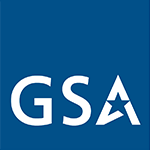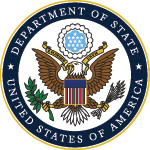Re-tuning is a systematic process aimed at minimizing building energy consumption by identifying and correcting operational problems that affect buildings, typically at no or low cost. Re-tuning relies on data from building automation systems to identify and implement control improvements, requiring only the time to program the changes. These cost-effective operational enhancements ultimately boost energy efficiency, reduce operating expenses, lower greenhouse gas emissions, and improve occupant comfort. This informational webinar marks the launch of the 2024 FEMP Re-tuning Challenge. Its goals include providing training on the re-tuning process, estimating outcomes from various re-tuning measures, and empowering sites to independently conduct re-tuning (train the trainer approach).
Instructors
Varun Sood, Mechanical Engineer, Pacific Northwest National Laboratory Read Bio
Varun Sood is a Mechanical Engineer with Pacific Northwest National Laboratory (PNNL). He joined PNNL in November 2018 and supports the Federal Energy Management Program and the U.S. Army Reserve. His focus is on Energy and Water Security (Resiliency) analysis, Comprehensive Energy, Water and Waste Evaluation efforts, and Operations and Maintenance in the federal sector. For his work with the Army Reserve, Mr. Sood received a FY2022 Federal Energy and Water Management Program Award for exceptional accomplishments in energy, water, and fleet management in the federal sector. Prior to joining PNNL, Mr. Sood was a Resource Efficiency Manager for the Army Reserve and was responsible for promoting the energy and water conservation programs at 63rd Readiness Division. During his tenure, the 63rd RD Energy Program received a FY2016 Secretary of the Army Energy and Water Management Award for Energy Efficiency and Energy Management, Small Group.
Carolyn Goodman, PNNL Read Bio
Carolyn Goodman is a mechanical engineer with a M.S. in Energy Science, Technology and Policy from Carnegie Mellon University's College of Engineering. Since joining PNNL in 2021, Carolyn's work has focused on reducing energy consumption and improving resilience in new and existing buildings through application of the Re-tuning methodology. This includes data analysis and using the PNNL developed Building Re-tuning Simulator (BRS) for optimization of Re-tuning control sequences. Her research also focuses on intelligent load control and grid interactive buildings, enabling buildings to provide flexibility during periods of high demand. Prior to joining PNNL, Carolyn worked for a systems integrator developing automation solutions for municipal and industrial systems. In addition, she worked at an early-stage SBIR Phase II awarded start-up leveraging commercial refrigeration as a flexible electric load and distributed energy resource.
Nael Nmair, Supervisor of Facility and Fleet Optimization Pillar, Department of Energy, Federal Energy Management Program Read Bio
Mr. Nmair is the Supervisor of the Facility and Fleet Optimization Pillar for DOE/FEMP and a registered electrical engineer with over 30 years of experience in facility design and construction. He has extensive experience in facility requirements, facility evaluations, energy and water management, and operations and maintenance (O&M). Mr. Nmair's experience includes managing projects across the globe, encompassing eight engineering offices, for the U.S. Army, U.S. Air Force, and the U.S. Department of Energy (DOE). His project management portfolio includes a wide range of complex construction and maintenance projects for both civilian and military interests, including bridges, entire military bases, aircraft hangars, airfields, hospitals, training centers, operations, and maintenance (O&M), and border security.
Learning Objectives
Upon completion of this course, attendees will be able to:
- Recognize the four basic principles of re-tuning;
- Learn about the FEMP Re-tuning Challenge and its benefits;
- Identify the FEMP Re-tuning Challenge application process and how agencies can apply for the free training at their sites.









